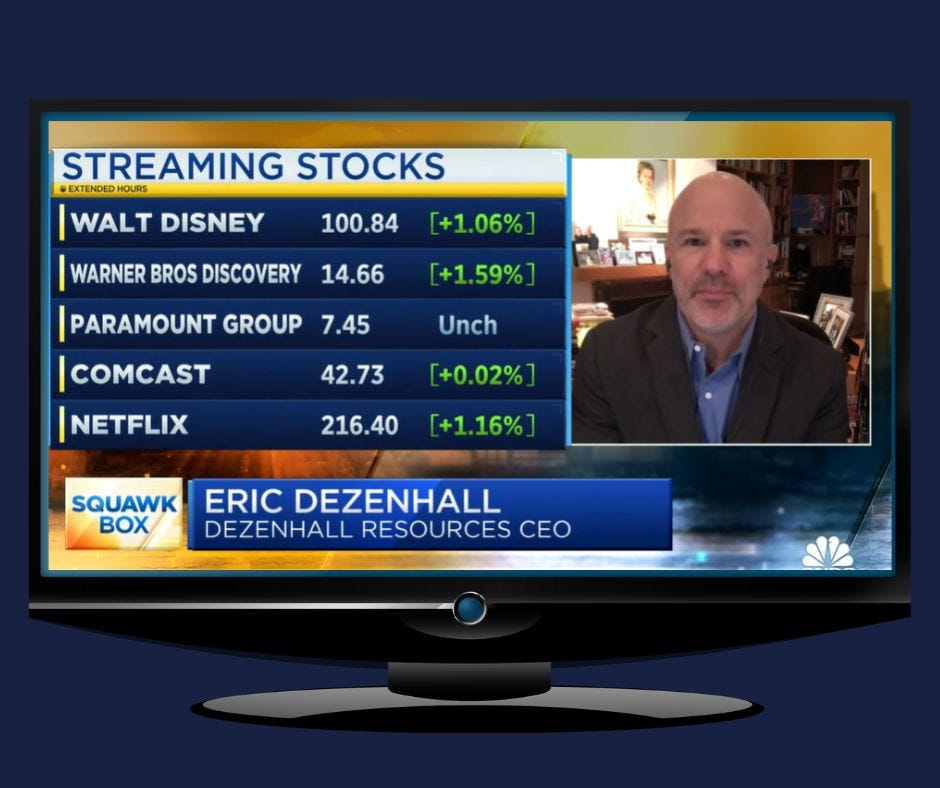Stream This: Political Ads and the Coming Battlegrounds
Hulu has decided to run political ads after Democrats protested the Disney-owned streaming service had rejected its issue-oriented commercials. Political ads have been around for a long time, but the public collision between big companies and social issues is just getting started, as I discussed recently on CNBC’s Squawk Box.
I’m not privy to why Hulu changed its mind, but I can guess. Advertising is what fuels the media, and it’s hard to turn down sustenance. Nevertheless, I think there’s another motive bubbling beneath the surface.
Hulu is an important property in the culture, and progressives are very good at mobilizing cultural forces to achieve their objectives. They’re also good at boycotts — way better than conservatives. It’s hard to imagine Hulu wanted to provoke this.
What conservatives lack in boycott power, they make up for in their leverage to make trouble for corporate transgressors, as we’ve seen in Florida after Disney finally voiced opposition to the “don’t say gay bill.”
I don’t think conservatives are keen on running issue ads on Hulu. Still, both wings of American politics are going to have to consider new options if they’re going to pick up support. Progressives have erred terribly in their vocal assumptions that all Trump supporters are frothing racists. I know plenty of people who don’t like Trump but also won’t vote Democratic out of resentment on this count.
Barack Obama could be pretty smart about things like this, sending signals to skeptics that he recognized they weren’t so sure about him and to give him a chance. And they did. Twice, despite his gaffe about much of the country “clinging to guns and religion.” (Lately, Obama has signaled his discomfort about the woke wave sweeping the nation.)
Conservatives have frightened away potential supporters in their unquestioning support for Trump, independent of his behavior and through relentless rhetorical warfare against half the country. Ronald Reagan, on the other hand, was able to make deals with Democrats and worked hard to win over labor unions, which had been the unequivocal province of Democrats.
The journalist Michael Kelly said, “The animating impulse of modern liberalism is to marginalize itself and then enjoy its own company. And to make itself as unattractive to as many as possible.” I think it’s true of conservatives, too.
It will be interesting to see if both sides use advertising to win over potential voters or maintain their stance of “I don’t like you or anyone who reminds me of you. And you smell.”
One risk for Hulu is if the service becomes the exclusive property of progressives. While it’s hard to quantify, there can be little doubt that Netflix paid the price for being linked too closely with woke politics in their programming and equivocating when it came to supporting artists like Dave Chappelle.
If the recent past is prologue, we can probably count on both camps to remain in their silos firing missiles at each other because, regrettably, the Trump-like spectacle overwhelms the soft persuasion of Obama and Reagan.
Indeed, as I write this, Florida Governor Ron DeSantis is holding a news conference introducing legislation to stop “woke CEOs” and “corporate ideological power,” saying, “For every master of the universe who’s prattling on about, you know, no emissions and all this stuff, I don’t see very many of them giving up their private jets.” I can envision this as a political ad in 2022 and 2024.
As companies decide how to handle the political and social battles that lie ahead, their employees will play a greater role than ever. While “employee communications” has been a growing enterprise for some time, it’s becoming a massive challenge for several reasons.
For one thing, while companies pay attention to public opinion, the footsteps they hear loudest belong to employees. I have seen time and again that companies have taken positions based on the recommendations of colleagues that do not reflect sentiment in the broader culture. Media-related companies are as bubbled in progressive ideology as a MAGA rally is with Trumpism.
Employees no longer have the corporate loyalty they once had during the twentieth century. Almost no one who joins a company now assumes they will remain the way they once did throughout their careers. Furthermore, they have the means to make trouble for their employers. One of the biggest challenges I have in my crisis management practice is my near certainty that someone in the corporate meeting I’m attending is broadcasting internal discussions to investigative reporters, if not directly to Twitter.
None of this means that companies can’t still be smart, or at least as smart as possible. Part of being smart is accepting that the objective of navigating this volatile climate does not equate with pleasing every party, external or internal. And not every aggrieved party has the power to bring you down. I do not doubt that there were those at Netflix who were generally troubled by Dave Chappelle’s content. But in all likelihood, there were even more who wanted to hear what he had to say. Netflix’s better option was to let him say it.


